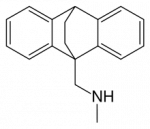Ham-milton
Bluelighter
- Joined
- Jul 20, 2007
- Messages
- 5,746
I don't know if that's entirely true. Obviously the DEA has increasingly wide leeway here, so some things that aren't are becoming. I think there's a point where the DEA isn't going to try stretching any more, which will hopefully be after they announce their all-inclusive definition of a "positional isomer."
Afloqualone seems significantly different, but I suspect it'd still be considered an analogue. It is awfully substituted, though, and pharmacologically as I recall, I dunno if it'd be considered "substantially similar"- but then again, there's a huge difference in the subjective effects of some psychedelics considered "substantially similar"- that part of the law isn't one the DEA seems to care about, though. The law was created for opioids, not psychedelics, though, so I can see why that clause poses a problem for them. But unless it's been used as a prescription drug, odds are they'll stretch the law for a prosecution.
There seems to be a huge number of sedatives that were phased out of use and never scheduled. I did some searching today through one of those chinese-chem supplier search pages. It had a huge collection of various drugs categorized by activity (I paged through the "stimulants and depressants" category at echinachem- they're not a supplier or sell anything, afaik).
These are some that seemed like good candidates for legal sedatives that might have abuse potential.
Primidone (deoxyphenobarbital)- an uncommon, but unscheduled drug used to control epilepsy. It metabolizes into phenobarbital. Are other deoxy-barbitals likely to metabolize into barbiturates? A deoxy-version of a short-acting barb might be legal and enjoyable as hell.
Alpidem
Carbamate derivatives (Felbamate, for instance- though theres the obvious potential for toxicity)
any benzo that hasn't been scheduled yet. I don't think there's chance in hell the analogue act will ever been expanded to include benzos.
GABA-derivatives galore. Has the GHB-analogue of Gabapentin been synthed? How about a GHB-analogue of pregabalin?
There's a whole lot more, but these seem the most likely to have recreational potential. I also looked through most of the anti-epileptics listed at the bottom of Wikipedia's tab on primidone.
I think Chloral Hydrate analogues aren't going to ever become popular. Even addictive shit doesn't have much potential if it's burning holes in your stomach or brain.
The problem with a lot of these drugs is that they're not easy to synthesize. If they ever became popular drugs of abuse the DEA would schedule them and it'd be a pain in the ass to import. When you can have China mix up a kilo for you and airmail it, it'll be expensive, I'm sure, but not nearly the hassle it'll become if the only potential source is clandestine labs.
Afloqualone seems significantly different, but I suspect it'd still be considered an analogue. It is awfully substituted, though, and pharmacologically as I recall, I dunno if it'd be considered "substantially similar"- but then again, there's a huge difference in the subjective effects of some psychedelics considered "substantially similar"- that part of the law isn't one the DEA seems to care about, though. The law was created for opioids, not psychedelics, though, so I can see why that clause poses a problem for them. But unless it's been used as a prescription drug, odds are they'll stretch the law for a prosecution.
There seems to be a huge number of sedatives that were phased out of use and never scheduled. I did some searching today through one of those chinese-chem supplier search pages. It had a huge collection of various drugs categorized by activity (I paged through the "stimulants and depressants" category at echinachem- they're not a supplier or sell anything, afaik).
These are some that seemed like good candidates for legal sedatives that might have abuse potential.
Primidone (deoxyphenobarbital)- an uncommon, but unscheduled drug used to control epilepsy. It metabolizes into phenobarbital. Are other deoxy-barbitals likely to metabolize into barbiturates? A deoxy-version of a short-acting barb might be legal and enjoyable as hell.
Alpidem
Carbamate derivatives (Felbamate, for instance- though theres the obvious potential for toxicity)
any benzo that hasn't been scheduled yet. I don't think there's chance in hell the analogue act will ever been expanded to include benzos.
GABA-derivatives galore. Has the GHB-analogue of Gabapentin been synthed? How about a GHB-analogue of pregabalin?
There's a whole lot more, but these seem the most likely to have recreational potential. I also looked through most of the anti-epileptics listed at the bottom of Wikipedia's tab on primidone.
I think Chloral Hydrate analogues aren't going to ever become popular. Even addictive shit doesn't have much potential if it's burning holes in your stomach or brain.
The problem with a lot of these drugs is that they're not easy to synthesize. If they ever became popular drugs of abuse the DEA would schedule them and it'd be a pain in the ass to import. When you can have China mix up a kilo for you and airmail it, it'll be expensive, I'm sure, but not nearly the hassle it'll become if the only potential source is clandestine labs.










